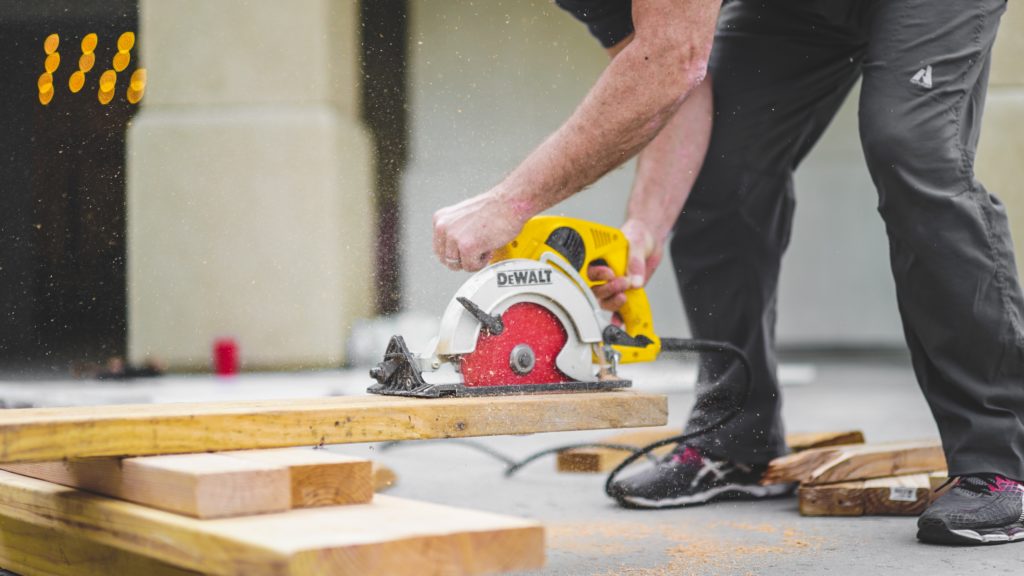Last year we answered the question: Should you use personal funds or outside funds for your fix and flip project?
If you’ve opted for outside funding, there’s one major question left: How do hard money fix and flip loans compare to conventional loans?
This article will outline a few of the differences between the two choices, and show you why a hard money fix and flip loan could be the best option to fund your next investment property.
What Are These Types Of Loans For?
From the initial purchase of the property to renovation and ultimately the final sale or rental agreement, fix and flips are meant to be a quick process.
Conventional loans are most often taken out for mortgages on long-term residences.
Hard money fix and flip loans are specially made for real estate investors to get money quickly to accommodate for the lightning pace of these projects.
Who Provides Each Type Of Loan?
Conventional loans are provided by government-regulated institutions like banks and mortgage lenders.
Hard money fix and flip loans are provided by private investors who can offer benefits that conventional loans cannot. Not being subject to the same government regulations as large banks, private lenders are able to give more freedom to borrowers who might not typically qualify.
What Are The Qualification Requirements?
Conventional loan qualification requirements are set and regulated, and a low credit score could stop you from getting the money you need.
Because hard money loans are provided by privately owned lending companies, hard money loan requirements are flexible and up to the lender to determine. Credit scores are not an impediment to accessing these types of loans.
How Are These Loans Secured?
Once meeting the qualifications to obtain a loan, the money needs to be secured by a borrower’s assets.
Conventional loans are secured by both the borrower’s personal credit and property.
Hard money fix and flip loans are secured by the property that is being purchased. If the borrower is unable to pay back the loan, the lender will take possession of the property to pay off the owed amount.

What Are The Interest Rates Like?
When choosing to commit to a loan, interest rates are a top concern. You want to know exactly how much you’re going to be paying back at the end of the loan.
Conventional loans have a range of interest rates that usually fall between 2 and 4 percent.
The interest rates on hard money loans are considerably higher, typically ranging from 10 to 18 percent, but can go even lower. Don’t let the high price tag scare you off. This type of loan costs more because qualifications are flexible and the borrower recieves their money much faster.
What Is The Duration Of These Loans?
One of the defining differences between fix and flip loans and conventional loans is the time it takes until the loan has reached maturity.
Conventional loans are meant to be paid off in smaller increments, so they have a long duration of 15 to 30 years.
Hard money fix and flip loans are designed with a quick return of investment in mind, and typically last between 6 and 18 months.

How Long Is The Application Process?
Since the start of the pandemic, the real estate market has been breaking records in speed of sales. The national median time for houses to stay on the market dropped to as few as 37 days in 2021.
Conventional loan applications can take upwards of 4 weeks—long after many homes have already been sold.
To accommodate for this rapid turnaround time, hard money fix and flip loan applications take only 1 to 2 days.
How Long Will It Take To Get My Money?
So your lender has approved your loan. How long until they give you the funds to start your investment?
Conventional loans aren’t in any rush. Lenders can take about 30 days after the lengthy application process to deliver your funds.
Hard money loans are just as good as cash. Funds are delivered very quickly—within just a couple of days after approval.
Will There Be Prepayment Penalties?
Want to pay off your loan early? Your financial responsibility could lead you to face an additional fee.
Conventional loans encourage borrowers to build up interest payments over the 15 to 30 year lifespan of the loan, so they will typically charge around 2% of the total money borrowed if you want to pay it off early.
Prepayment penalties from hard money lenders are far less common. Most hard money lenders don’t want to punish their borrowers for successfully completing a project.
Will There Be Construction Draws?
When undertaking a fix and flip project, investors often hire contractors to quickly do the fixing so that they can focus on the flipping. Construction crews need to be paid, and the payment comes from the money secured from the loan. Payments are made incrementally in what are called “construction draws.”
Conventional loans do not often give construction draws. If they do, it could take 7-14 days after approval to receive your funds.
In hard money fix and flip loans, fast construction draws are not only common, but important for a timely completion of an investment project. Depending on your lender and how your draw schedule is arranged, payment can be delivered in as little as 1-4 days.

Find A Local Hard Money Lender
While hard money fix and flip loans have a much higher interest rate than conventional loans, the duration of the loan is much shorter and is optimized for a quick payoff after the fix and flip property is sold or rented.
This type of loan is perfectly suited to the current state of the real estate market: houses are on the market for a very short time, and investors need to be able to secure funding in enough time to have an edge on other buyers.
If you go the route of a conventional loan, you could be waiting an entire month just to complete the application process—long after many homes are already sold.
If you do choose a hard money fix and flip loan, be sure to enlist the services of a local hard money lender who is familiar with the real estate market. They can help you navigate the ins and outs of the area, and even help you find trustworthy contractors to help you complete your project.
Questions about Hard Money Fix and Flip loans? We Can Help.
If reading this article has not yet made you a hard money fix and flip loan believer, check out our resource page to learn even more about how these loans work and what they can do to maximize the return on your next investment.
Ready to get started? If you’re looking for a local hard money lender in Texas or Tennessee, head over to our Fix and Flip Loan application or contact us so we can guide you through the application process.
